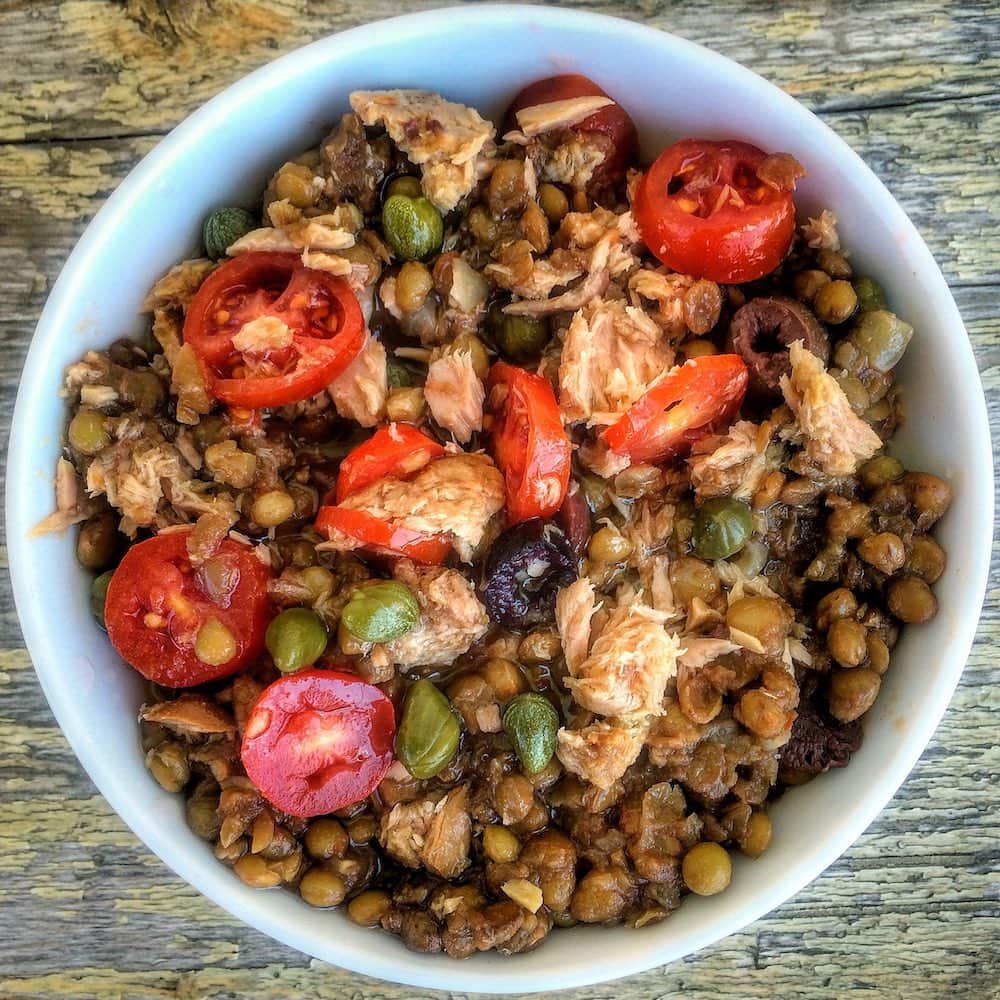Mediterranean Diet Good for Gut Health: Here’s What to Eat
A new study shows that a Mediterranean diet and plant-based foods are associated with a high level of good bacteria in the gut that have anti-inflammatory properties. This type of diet can help manage intestinal diseases.
October 24th, 2019

A new study shows that a Mediterranean diet and plant-based foods are associated with a high level of good bacteria in the gut that have anti-inflammatory properties. This type of diet can help manage intestinal diseases. Dutch researchers from the University Medical Center Groningen in the Netherlands presented their study at the United European Gastroenterology (UEG) meeting in Barcelona.
The researchers studied four groups: the general population, individuals with Crohn’s disease, ulcerative colitis and patients with irritable bowel and analyzed the relation between diet and gut microbiota. They found that certain foods such as beans, fish, nuts and wine were associated with increased levels of good gut bacteria. This bacteria helps in the synthesis of essential nutrients and short-chain fatty acids which are the main source of energy for cells lining the colon. The findings support the idea that the diet could be an effective management strategy for intestinal diseases, through the modulation of the gut bacteria.
It is important to note that a higher intake of meat, fast foods or refined sugar was associated with a decrease in the benefits associated with this good gut bacteria.
According to the lead researcher Laura Bolte, a dietitian, “The results indicate that diet is likely to become a significant and serious line of treatment or disease management for diseases of the gut – by modulating the gut microbiome”.
It is easy to include more of these protective foods in your diet:
- Have 2 servings a week of beans as a main course, some easy ideas include Greek lentils and one pot black-eyed peas. The next day you can repurpose them like I did above: I mixed yesterday’s lentils with tomatoes, capers and tuna.
- Start adding fish to your diet, frozen and canned is just fine, check out this my tips on how to eat more fish.
- Add more vegetables. Did you know that in the average Greek traditional diet the intake of vegetables is about a pound a day? Cooking your vegetables like the Mediterranean do, is an easy and delicious way to eat more. Check my post for more tips on eating more vegetables.
*Update: As many of you are asking about the photo above, it is how I repurpose lentils. I make the traditional Greek lentil stew and the I keep the leftovers in the refrigerator. The next I’ll mix the lentils with capers, chopped Kalamata olives, cherry tomatoes (sometimes sun-dried tomatoes and sometimes I’ll add tuna like I did above). I drizzle with a bit of olive oil and vinegar.
Source
Bolte, L. et al. 2019. Towards anti-inflammatory dietary recommendations based on the relation between food and the gut microbiome composition in 1423 individuals. Presented at UEG Week Barcelona October 21, 2019.
Photos by Elena Paravantes All Rights Reserved
My husband, after many years, was finally diagnosed with IBS. We have been instructed to follow the FODMAP diet. It is a miracle!!!!! But, no beans, onions, or garlic. These are just 3 of the foods that are off limits!
Thanks for sharing Arlene!
I love eating beans, but they don’t agree with me all that well. I usually have very loose stools and gas/don’t smell very good haha. Is there a way to overcome this, or do some people just not digest them as well as others?
There are some beans that are easier to digest such as lentils and black-eyed peas. Also soaking helps with the other type of beans. I would try incorporating small amounts and adding gradually.
I read about the studies of the Cretan diet (Mediterranean diet) and then I came across the book “How Not to Die: Discover the Foods Scientifically Proven to Prevent and Reverse Disease” by Dr. Michael Greger. I don’t think the Cretans were mentioned in the book, but it only reinforced the benefits of the plant based diet.
Thanks for sharing Joe.
I have the same question as Catherine: What is the dish in the picture? Recipe, please?
This is not the first time that I’ve seen a great looking pic of something in an article with no direction/link to a recipe. It would be fantastic if there was some kind of direction given to a recipe.
She said that she mixed yesterday’s lentils with tomatoes, etc.
Hi Alex, I have updated the post to include the recipe for the dish in the photo. As many of my posts are not recipes but nutrition news (studies), I may put a photo in the post of a dish that exemplifies the Mediterranean diet.
Thanks a Bunch! I get where you are coming from for sure… You just happen to be picking photos fo dishes – that look fantastic! There was another a few weeks back – that was predominantly chickpeas – that also looked amazing!
I can’t find the recipe for the Greek lentil stew. Can you provide a link?
Hi Bob, Just click on it , it will take you to the recipe.
She wrote: “The next day you can repurpose them like I did above: I mixed yesterday’s lentils with tomatoes, capers and tuna.”
I have updated the post to include the recipe for the dish in the photo.
Hi! What is the dish that is pictured? It looks awesome!
She said that she mixed yesterday’s lentils with tomatoes, etc.
Nancy is right. By clinking on the link ;lentils’ in the article, I came to an excellent recipe for the original lentils.
In general, I follow this diet and have for many years. I do have problems digesting beans though. Can this be overcome?